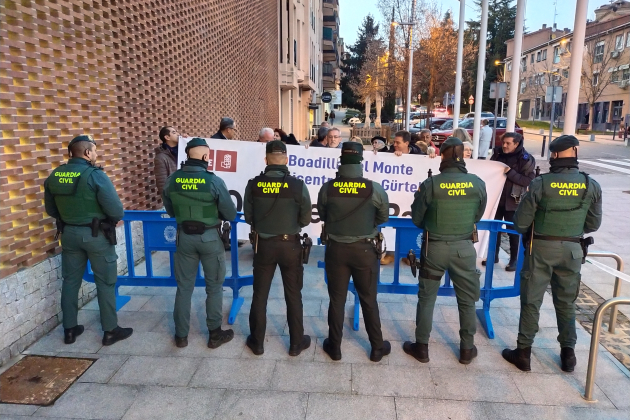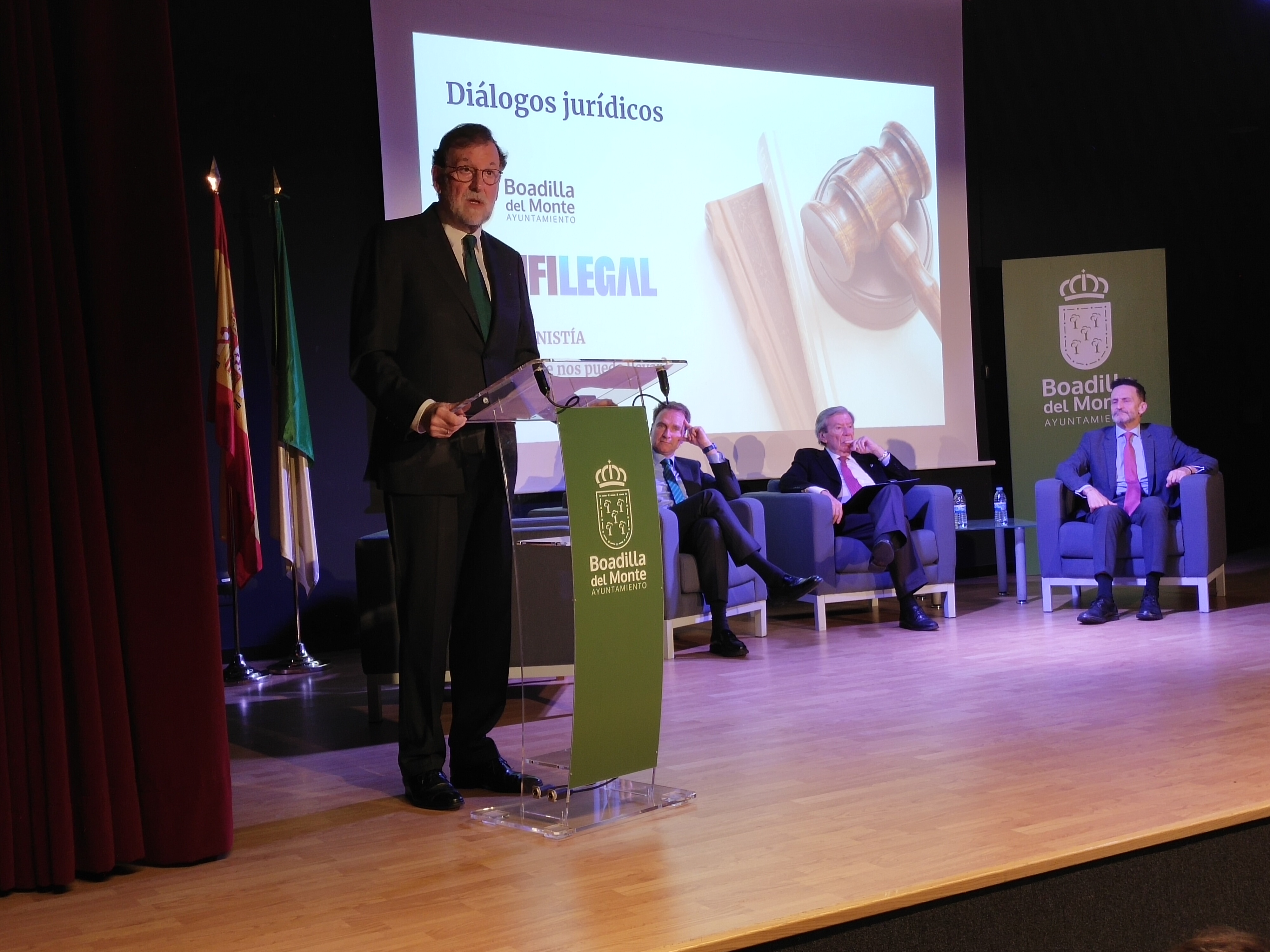The first public appearance of Mariano Rajoy since the Operation Catalonia Papers published this week by ElNacional.cat. And he used it to launch into criticism of the amnesty, dodge the issue of his involvement in Operation Catalonia and project impunity over his role in that parapolice plot. In a "legal dialogue" on the Catalan amnesty, held in Boadilla del Monte, near Madrid, the former Spanish prime minister entered through a side door, did not address the media before the event and avoided the entire scandal throughout his speech. The only reference he made to the matter was with reference to the three parliamentary investigative commissions on Operation Catalonia, the Jihadist terrorist attacks of August 2017 in Catalonia and the Pegasus espionage affair - all three were approved by the Congress of Deputies a month ago. According to Rajoy, the Socialists (PSOE) and their partners have promoted these inquiries with the aim of "seeing if they bring something out, and then going to the courts". "I say to them that they have it very tough", he affirmed.
In his speech, Rajoy argued that the amnesty for Catalan independence process prosecutions aims to "guarantee the impunity of those who violated the Constitution and the laws, and assaulted democracy" and "to condemn those who defended the Constitution, the law and democracy, the judges, prosecutors, security forces and the Spanish government who stopped the coup with the application of Article 155". The former Spanish PM called the amnesty law "a complete rejection of our Constitution and our democracy", he asserted that it seeks to "turn the coup plotters into honourable law-abiding citizens" and condemned "the truly remarkable [political] pirouettes" that have been seen in recent months.
The former Spanish PM called for "the greatest effort we are capable of so that Spain is what it is supposed to be: a serious country" and categorised the no-confidence motion of 2018 that removed him from power after the ruling in the Gürtel case, a major People's Party corruption scandal, as the "origin of the Frankenstein that has been experienced in Spain in recent years". During his speech, the former PP politician alluded to Pedro Sánchez on five occasions: one by name and surname, another as a "PSOE candidate" and three times referring to the person "that you in the audience are thinking of".
Rajoy's first words in public since ElNacional.cat revealed this week that the former Spanish leader was aware of Operation Catalonia and that it was he, together with former interior minister Jorge Fernández Díaz, who ordered the dirty war to begin in 2012, took place in Boadilla del Monte, a PP municipal stronghold just outside the Spanish capital. Before about 300 people, including about 80 standing, he spoke alongside Edmundo Bal, state solicitor and ex-Ciudadanos (Cs) MP, and José Luis Corcuera, veteran Socialist (PSOE) interior minister who tore up his party membership card after the victory of Pedro Sánchez in the primaries.
"We want to know today, is 'Who is M. Rajoy?'"
At the door of the theatre, the PSOE had called a protest against the presence of Mariano Rajoy. Those gathered displayed a banner with the slogan "¿Quién es M. Rajoy?" - a reference to the name which appeared in the PP's hidden accounting records of those who had received undeclared payments from the party. There were chants such as ""We want to know today, who is M. Rajoy" and "Gürtel! Gürtel! Gürtel!”. Six Civil Guard officers were present to control two dozen demonstrators.

In fact, police presence was abundant throughout the afternoon, with the Civil Guard and Municipal Police deployed since more than an hour before the event began. Access to pavements and to the roundabout in front of the theatre was restricted, and full of police patrol cars.
Edmundo Bal celebrates "the rebellion of the lawyers of the Congress"
During his address, the former Cs representative in the Congress of Deputies, Edmundo Bal, highlighted "the rebellion of the lawyers of Congress", after the report by the "brave lawyers" advising the Spanish parliament's justice committee which, unlike a previous report by Congressional lawyers, calls into question that the Catalan amnesty is constitutional. As for Corcuera, interior minister for Felipe González's PSOE government three decades ago, between criticisms of the media and the presence of "communists, populists and followers of Che and Chávez" in the Pedro Sánchez cabinet, he made a call for a grand coalition between the PP and the PSOE and harked back to a Spanish Transition "between people who came from the regime and people who came from the underground", characterising the 1978 Constitution as "the most important work that the Spanish have produced in centuries".

